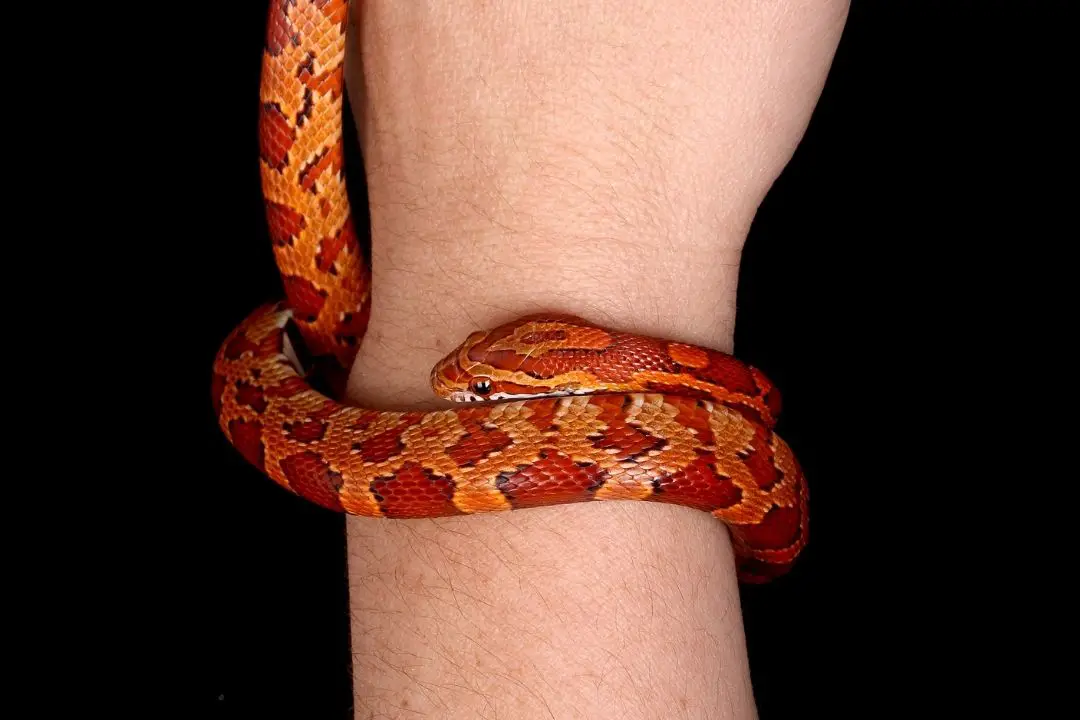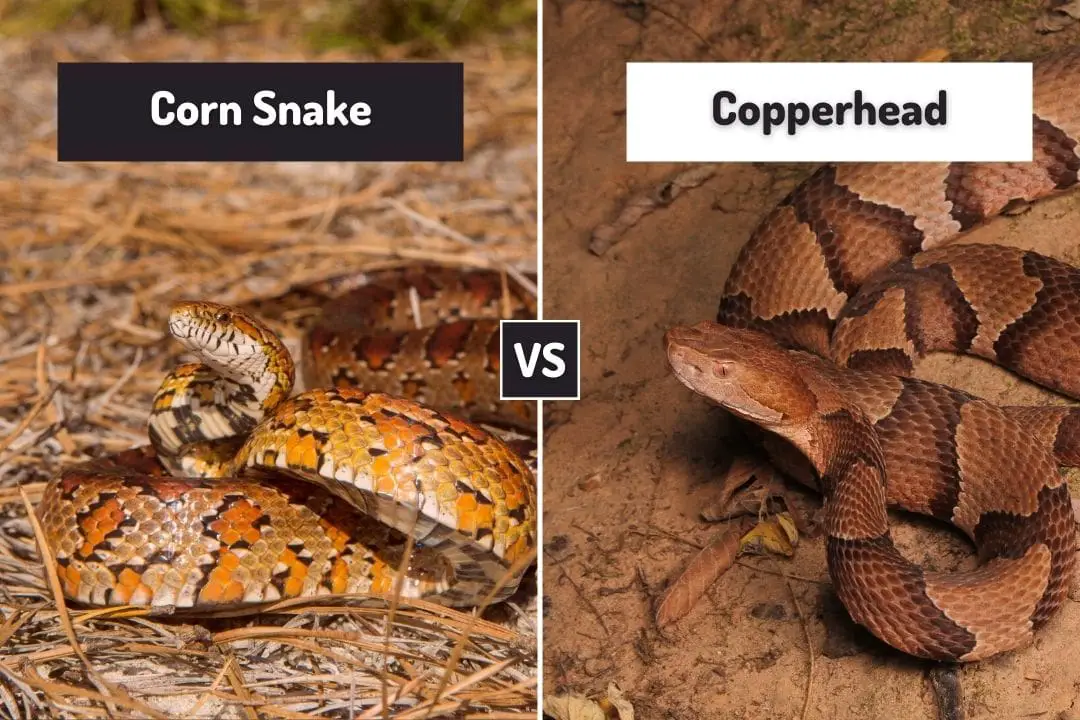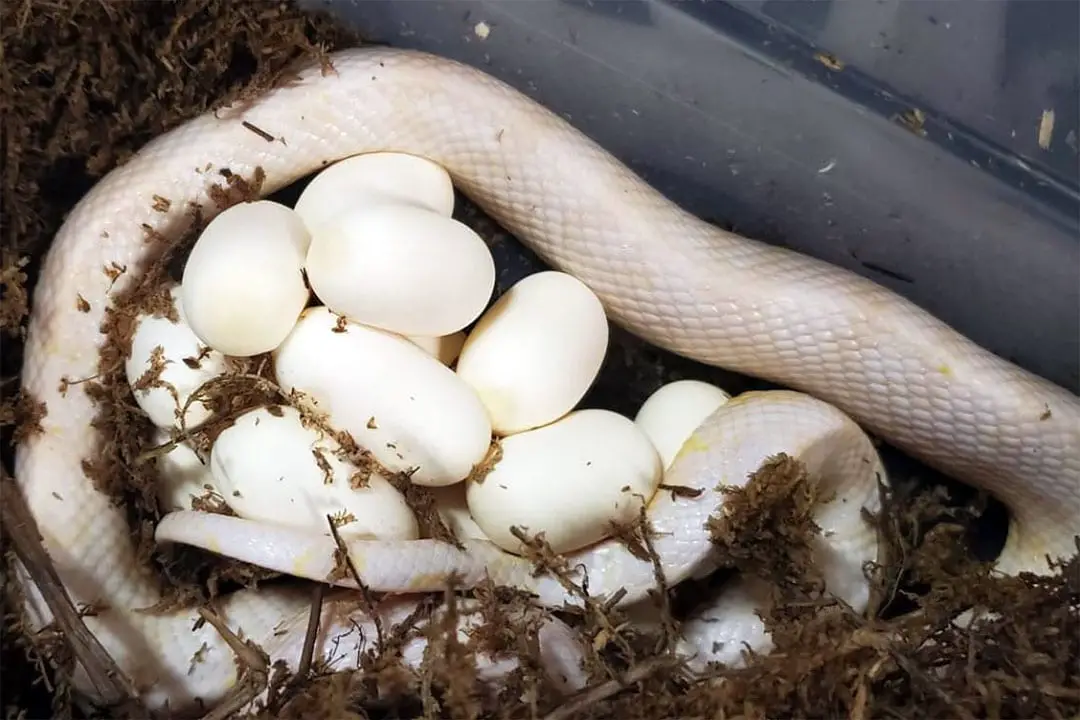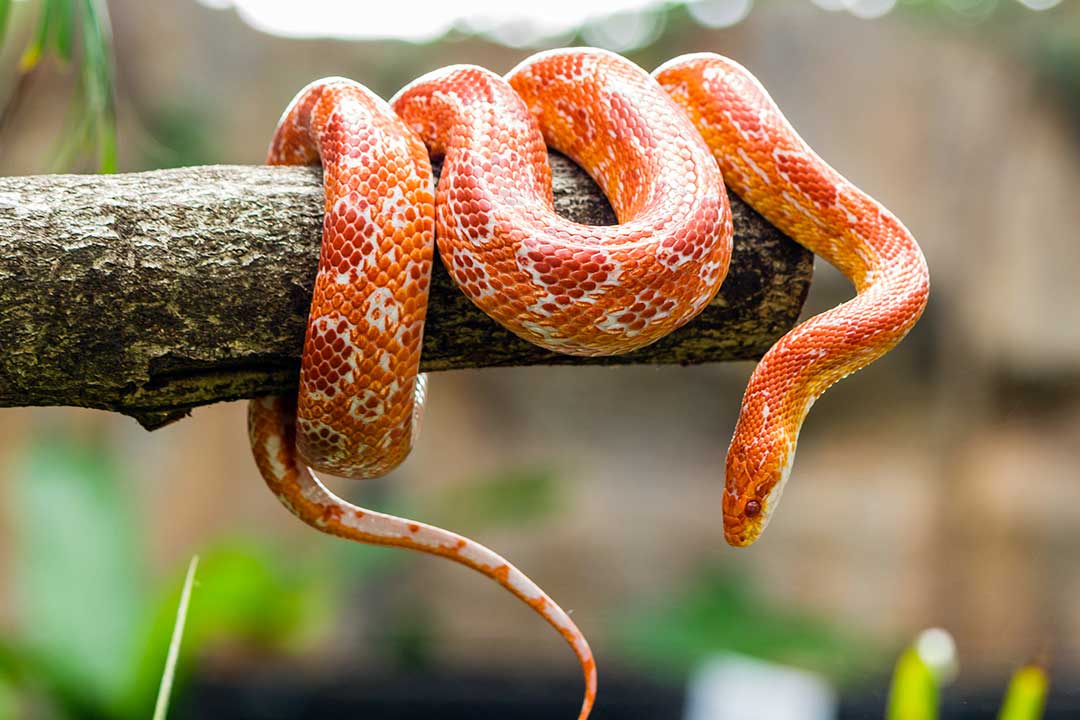Corn snakes are a popular species of snake. They are easy to find in captivity and are popular for their ease of keeping, small size, and temperament.
So, are corn snakes friendly?
Corn snakes are typically docile. They are curious and normally tolerate handling well.
Everything you need to know about caring for Corn Snakes in captivity:
Read our Corn Snake Care Sheet (Complete 101 Guide)
Temperament of Corn Snakes
Corn snakes are popular for beginners for a good reason. They are curious, active snakes that are enjoyable to watch as they explore their terrarium. They tolerate handling well and even seem to enjoy it once you gain their trust.
They rarely bite as adults and many owners enjoy letting them out to explore safe areas for short periods of time. Corn snakes are typically listed as the friendliest species of snake found in captivity. All of these traits make them an ideal snake for beginners.
They are typically defensive and more likely to bite as babies. This is partly because they will not be used to handling, and partly because of a natural instinct to protect themselves. You can gain their trust by repeatedly handling them in a positive manner. If you show them you are not a threat, your snake will come to trust you.
Can Corn Snakes Show Love?
This is a bit of a hard question. Generally, snakes and other reptiles don’t have the parts of the brain mammals like humans use to process feelings like love. It is a real debate if they feel emotions in the same way we do, or if this is just anthropomorphization.
This is a small sampler on the topic.
It is typically thought that reptiles like snakes don’t have the brain structure necessary for complex emotions like love. Reptiles can feel pleasure though for things that help them survive.
This means that your snake can form positive associations with you for providing things like food and warmth. They can also come to trust you so long as you treat them well and handle them often.
How to Handle Your Corn Snake
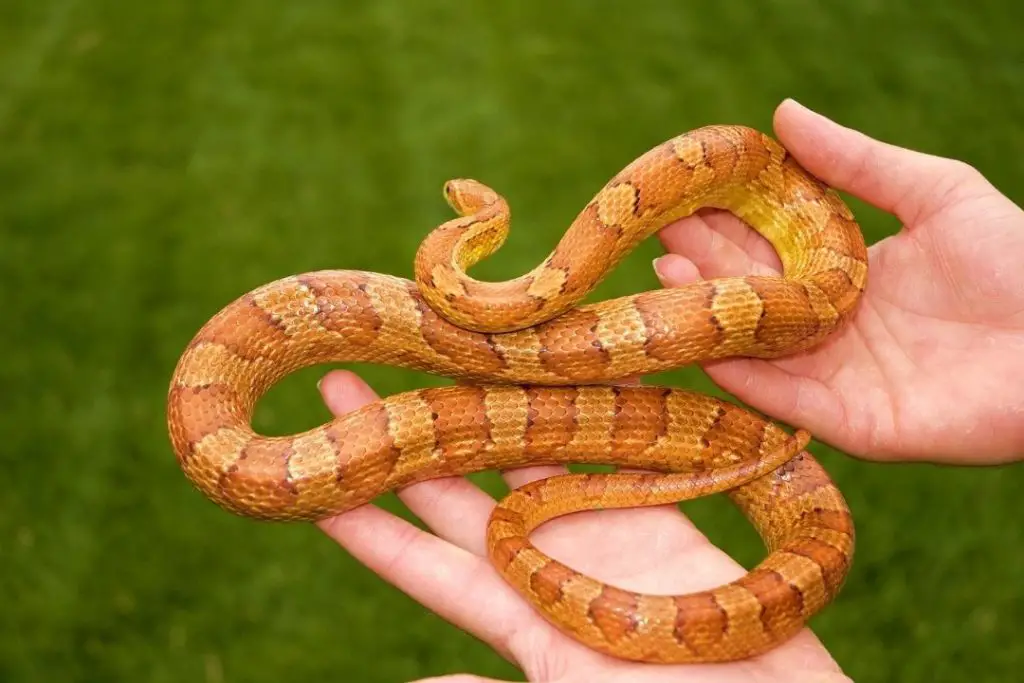
The first part of gaining your snake’s trust is to provide for it properly.
You want to create a safe habitat for your snake that is large enough for them. They should have heat, light, water, and the ability to hide and climb as they like. Your snake should be fed regularly, so they aren’t irritable from hunger.
Keeping on a schedule for feeding can be reassuring to all animals. You should also give a new snake at least a few days to settle in before you attempt to handle them.
If your snake is a baby it may be more defensive. Wild-caught snakes and older snakes that weren’t treated well before you got them will also be a bit harder to work with.
The key is to be patient and watch your snake. You should always approach your snake from the side and make sure it can see you approaching.
If your snake tries to escape or shows defensive behavior like hissing or puffing itself up, you should back off and try later. You also shouldn’t handle a snake right after a meal or if they are shedding.
Snakes typically feel vulnerable right after feeding or when they are shedding, so they are more likely to bite. When you pick up a snake, make sure you are confident and support its head and as much of its body as you can.
This will help make sure it doesn’t feel like you are going to drop it. Be gentle and allow your snake to investigate. You should keep handling sessions brief and positive until your snake is used to it.
After that, make sure to handle at least once a week and always keep interactions positive. You want your snake to know that you won’t hurt it, and the best way to do that is to show that handling ends well for the snake. Once your snake trusts you, you may see signs such as them approaching you or trying to interact with you when they see you. This is a great sign. If you let your snake explore a safe area like a portion of your home you have snake-proofed, you may also see them come back to you.
Temperament in Hatchlings

In the wild, hatchling and juvenile corn snakes are frequent targets for predators. Many animals including other species of snakes will eat a young corn snake.
This means that corn snakes hatch with a natural set of defensive behaviors meant to give them the best chance at surviving to adulthood. Your baby corn snake will view you as a very large predator at first. Even if the breeder you get them from started with handling them, they will still be suspicious. This isn’t about you being bad, your snake just doesn’t know you are safe yet.
You can earn their trust by letting them adjust to their new home for at least a few days before you try to handle them. Then, make sure you only approach from the side of their body.
Be gentle and patient. They will likely be defensive and scared at first. So long as you are patient and don’t pressure your snake, they should start to tolerate handling. Eventually, your snake may even enjoy handling.
Just remember to watch hatchlings and juveniles closely. Young corn snakes are known to be flighty and likely to go zooming off the second they get a chance.
Snakes are Individuals
While this guide does cover a general sense of corn snake behavior, you may find your snake is different. Each snake has its own personality and preferences.
Some snakes are calmer, and some are more flighty. They may also have experiences in their past that make them more or less likely to enjoy handling.
While species guidelines are helpful, your snake may defy the typical personality of a corn snake. Knowing your snake and its preferences will help you create a better relationship with your pet.
Summary
Corn snakes generally make great pets.
They are docile and curious, so they are great to watch and handle. Just remember that it takes time to gain your snake’s trust and that young snakes are more likely to be defensive.
Always stay calm and never hurt or yell at your snake. This can make them frightened and less likely to trust you in the future. Comment below with any handling tips or stories about your snakes!
